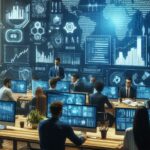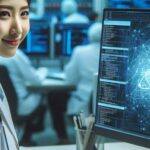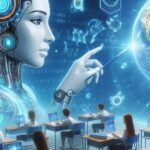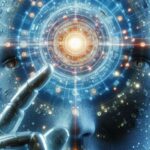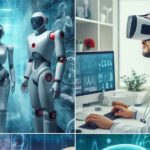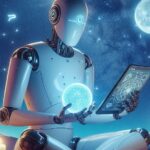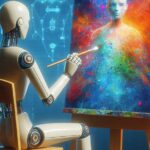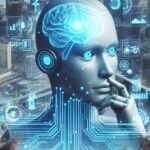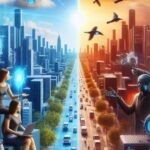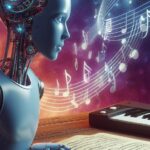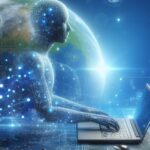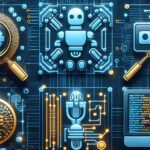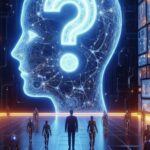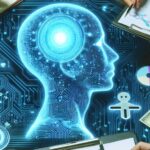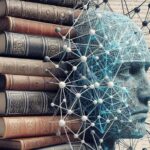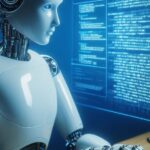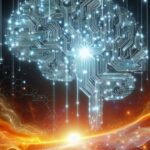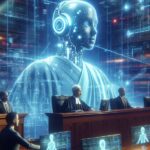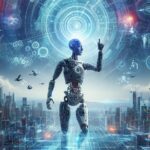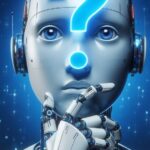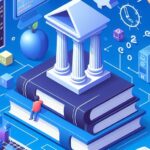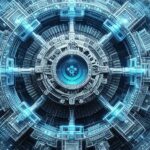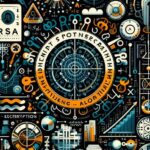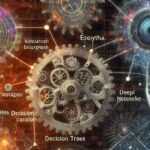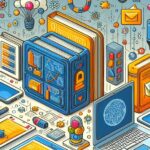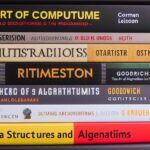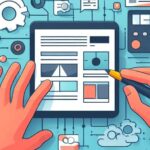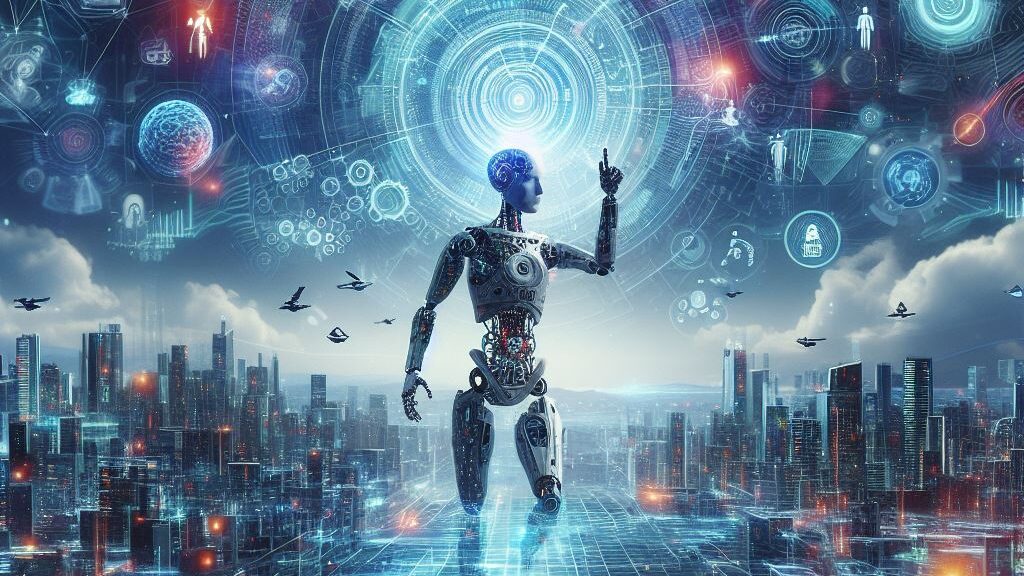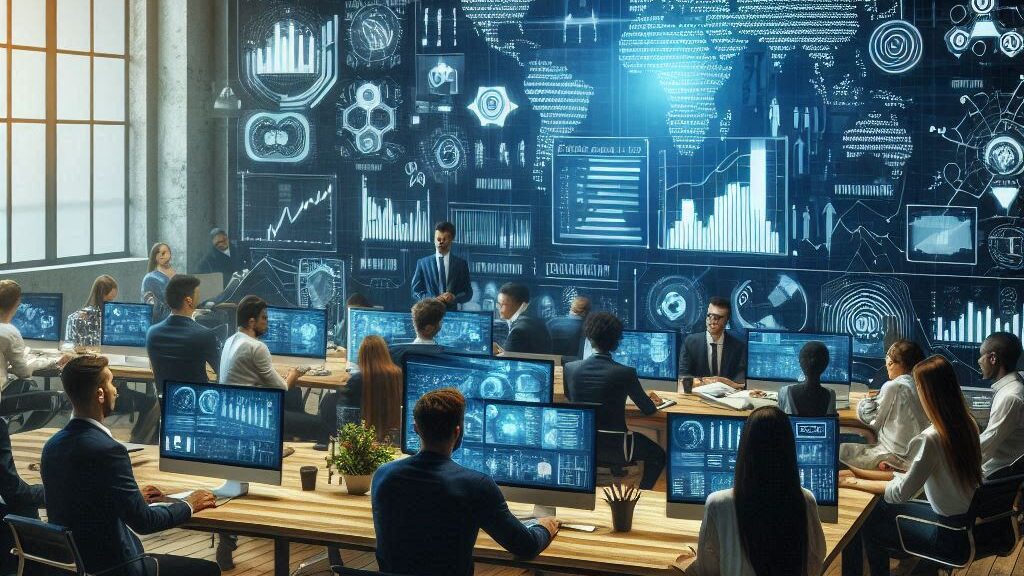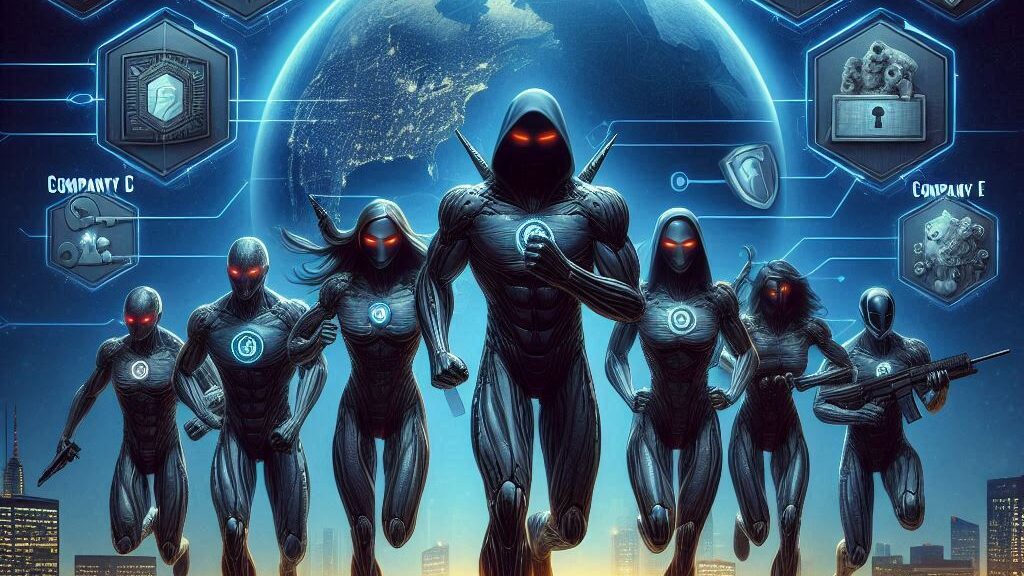In the modern tech world where AI is receiving more and more attention, AI has a higher significance. Self-driving cars, personalized recommendations in streaming services, or any other activity that involves making choices are some of the many. While it can be viewed as simply an improvement in technology, is it possible that it might be expressing something further? Humanity decided to vote on whether AI was the first step of the fourth industrial or technological revolution or not.
Table of Contents
Understanding the Industrial Revolutions
There is a must to have a dive into the possible AI as the forerunner of the new evolution. After that, let’s return to the previous industrial revolutions.
1. First Industrial Revolution
The first industrial revolution that took place in the late 18th century was the epoch-making event that brought the nations from agricultural life into industrialized society. The significant inventions included the steam engine and the production of textile machines, which drastically modified the way manufactured goods were made.
2. Second Industrial Revolution
We shall consider the second industrial revolution in Great Britain as the beginning of the 19th and 20th centuries. First of all, it was the period of the spreading of electricity, steel, and mass production of automatized products. The labor force was replaced by machines, which drastically changed the whole society and economy of the industrial world.
3. Third Industrial Revolution
The Industrial Revolution marked the third or so-called digital revolution beginning in the second half of the 20th century and with the appearance of the computer, telecommunications, and the Internet. The machine age was in the works whereby many processes were automated with the genesis of the information age.
The Emergence of Artificial Intelligence
Now, the scenario turns to the time we live in – the era of technology and the flow of intelligence that will influence industries and economies alike! AI which is a discipline of study from computer science that means developing programs to carry out activities that begin with a human level of thinking, has been already a source of ground-breaking achievements with applications in multiple areas.
AI in Everyday Life
It is almost not possible to distinguish between daily AI interaction and human interaction: for instance, think of Siri and Alexa as your personal assistants and search engines and social media feeds that have predictive algorithms. This function of AI grounds on its unique capability to track complicated sets of data and make correct decisions which opens fresh horizons in different fields.
AI in Healthcare
AI is an ongoing revolution in healthcare that empowers AI-driven diagnostics, drug discovery, and personalized treatment plans. Machine learning algorithms can assess medical imaging studies for unusual structures with higher precision than human experts, which leads to the detection of the disease earlier and more positive outcomes for the patients.
AI in Manufacturing
In manufacturing, AI-driven robotics and automation bring about optimized processes and error-redundancies. They consequently improve efficiency, capture data on waste and resource consumption, and inform those in charge of the ongoing operations. Smart factories with AI-based sensors that are capable of looking ahead for maintenance needs can prove to be effective, preventing factory stoppages and at the same time, producing more.
AI in Finance
In finance, AI algorithms have already been implemented in fraud detection systems, algorithmic trading platforms, and also financial advisory services that are tailored for each client. The scrutiny of the market trends and the corresponding customer behaviors ensure the AI a decent speed as well as an informed nature of the decision-making in investment management.
The Potential of AI as the Fourth Industrial Revolution
Because it is a universal tool permitting industries to be transformed, whether artificial intelligence will appear as the fourth industrial revolution is not far-fetched. Here’s why:
Unprecedented Connectivity
AI can be intertwined with different systems and technologies as never before because it is an area of built-in connectivity. This is perfectly illustrated in the emergence of the Internet of Things (IoT) and smart devices which have brought huge leaps in the collaboration and efficiency elements.
Augmented Intelligence
Even though the chief purpose of AI is to supplement human abilities, it helps to heighten them. Artificial intelligence (AI) is especially effective in this area due to its ability to automate mundane tasks and generate data-oriented knowledge that eventually can help humans direct their time and energy to higher-level thinking, creativity, and innovation thus in turn enhancing productivity and economic growth.
Ethical and Societal Implications
On the bright side, though, all members of society bear certain duties in return for the rights of self-determination and self-expression. When AI technology grows stronger, objection from limited aspects like data privacy, algorithmic bias, or job displacement finds itself before it. Keeping a balance between tech development and human welfare is going to be key to the AI technology of the next epoch.
1. Data-driven Decision Making
AI, on the one hand, can be data-centric, and it utilizes large datasets in real-time to offer more effective decision-making systems in multiple sectors. Active usage of AI-based predictive methods helps businesses to bring shifts in line with the market trends, understand consumers ‘ preferences, and ultimately optimize resource allocation that ensures security and agility to be at par with the competitors.
2. Personalized Experiences
Among other sorts of the fourth industry revolution which will be bringing in intelligence artificial, is a time of personalization. For instance, the integration of personalized recommendations on e-commerce platforms or the creation of customized learning paths in education can be made possible and at the same time be scalable through AI algorithms which can deliver these personalized experiences that increase the quality of user engagement and satisfaction.
3. Sustainable Development
With the issues relating to global warming and environmental sustainability becoming more popular, artificial intelligence has many solutions for more radical ways of development. Algorithms based on AI’s energy optimization can be minimized, waste can be reduced, and resource utilization can be improved. Therefore, such technology plays a very important role in the green and sustainable future.
4. Enhanced Accessibility
AI has the unique power of bypassing accessibility obstacles in the journey of people with disabilities. From speech recognition tools created for the visually impaired to intelligent prosthetics controlled by neuro interfaces, AI technologies are facilitating the improvement of quality of life for people with disabilities, and provide equality and inclusivity.
5. Global Collaboration
Today, in a world that is more connected than ever, artificial intelligence (AI) serves as a facilitator for global collaboration as well as knowledge sharing. AI-powered translation tools remove language barriers, thus making cross-cultural conversations and cooperation on a scale that was not possible before in ways that had never been perceived. Through collaboratively engaging nations, AI quickly becomes a catalyst for innovation and solutions optimization on a worldwide level.
6. Autonomous Systems
In so doing, AI leads to the creation of automated systems, which work with minimal participation of humans. AI-driven automation is set to reshape how industries work and expedite the workflow. The example of self-driving vehicles transforming transportation and drones that expedite logistics and delivery are illustrations of such innovation.
7. Predictive Maintenance
In this regard, AI-based predictive maintenance systems that can predict equipment failures before they occur, and facilitate a decrease in downtime and maintenance costs in manufacturing and infrastructure can all be said to do this. Based on the analysis of sensory data and historical performance metrics, the AI model will perform scheduled maintenance to save asset utilization and eventually prolong the life of the equipment.
8. Innovation Acceleration
AI implies that innovation is boosted through the acceleration of the processes of research and development. AI-stimulated simulations and modeling techniques allow the investigation of complex systems independently of physical experiments and design solutions quicker.
9. Cybersecurity Enhancement
AI serves as a key in reinforcing responses to digital attacks as digital threats become more rampant. Machine learning algorithms would succeed in sensing and counteracting cyber threats as they occur by dissecting network traffic patterns and hunting down whacked behavior. Cyber-AI-enabled tools not only provide real-time monitoring and quick response to cyber threats but also enable the detection of previously undetected vulnerabilities.
10. Economic Restructuring
Introducing artificial intelligence into the economic cycle can probably generate drastic changes to the employment environment through which the existing system is being transformed. While AI creates a niche market in sectors, such as data science and the ethics of AI systems, it can also affect jobs by automation. To correct the outcomes of AI-driven automation on socioeconomic status, there is a need to introduce preventive measures, such as retraining programs and social security net, to smoothen the transition for the affected workers.
Conclusion
In the last, AI which appears at the origin of the fourth industrial revolution may be fanciful, but the revolution’s impact cannot be underestimated. Along with its ability to bring innovative solutions to the table, AI helps in making processes more effective and takes advantage of human capabilities. Since the very start, AI has been occupying the spotlight among technological progress. Whether AI is enhanced or outpaced mankind has the responsibility to use it appropriately and ethically will ensure its success and a healthy future for humankind.

